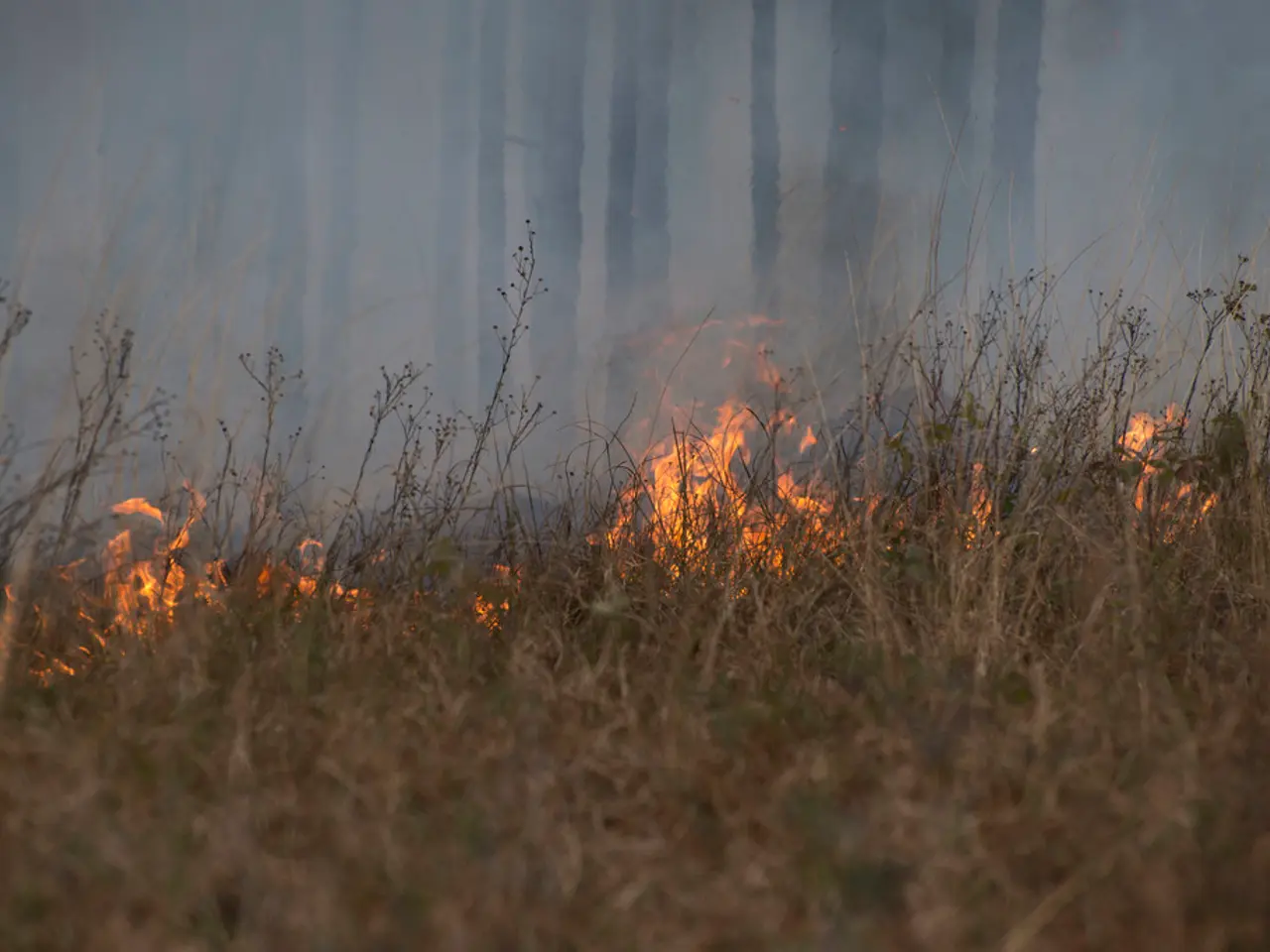Enhancements in India's Animal Health: Examining Major Reforms, Vaccination Advancements, and Global Acknowledgement at the 9th ECAH Assembly
In a significant move, the 9th meeting of the Empowered Committee for Animal Health (ECAH) was held in New Delhi on July 24, 2025, chaired by Principal Scientific Adviser to the Government of India, Prof. Ajay Kumar Sood. The meeting aimed to review the country's progress and future roadmap in managing animal diseases.
Prof. Sood emphasized the need for intensified awareness drives on Foot and Mouth Disease (FMD) vaccination and antimicrobial resistance (AMR). In response, the government has taken comprehensive and proactive steps towards animal health management.
Vaccination Efforts and Digital Recording
Over 124 crore doses of the FMD vaccine have been administered so far, a testament to the large-scale vaccination effort. These vaccination drives are digitally recorded through the Bharat Pashudhan app, enhancing traceability and coverage. Routine vaccinations are conducted extensively, as demonstrated by district-level campaigns like the one in Prayagraj, where over 50,000 FMD vaccines were administered recently with door-to-door vaccination using mobile teams.
Establishing FMD-Free Zones and Regulatory Reforms
To facilitate better disease control and enable higher standards for animal health and trade, the government is actively working to establish FMD-Free Zones across nine states. Regulatory reforms have also been introduced to ease access to veterinary products and improve treatment efficacy, aligned with combating antimicrobial resistance (AMR).
Technological Initiatives and International Recognition
New technological initiatives, such as the Animal Vaccine Intelligence Network (AVIN), have been launched as pilot projects to monitor vaccine cold chains, ensuring vaccine potency. India has also achieved international recognition for its animal health standards, including the creation of India's first Equine Disease-Free Compartment certified by the World Organisation for Animal Health (WOAH), highlighting progress in biosecurity and disease compartmentalization.
Boosting Pandemic Preparedness
Two national laboratory networks have been established: the Indian Network of Genomic Surveillance (INGeS) and the Indian Network on Transboundary Animal Diseases (TADs) and Emerging Infectious Diseases (EIDs) to boost pandemic preparedness. A new digital platform titled "Rate My Lab" is in development to promote transparency and performance benchmarking in diagnostic services.
Ongoing Progress in Animal Health
Efforts are ongoing to secure NABL accreditation for several central and state-level animal disease diagnostic laboratories. Notably, ICAR-NIHSAD in Bhopal has been recognized as a Category A Rinderpest Holding Facility by both WOAH and FAO, a distinction shared by only six institutions worldwide.
In summary, India’s recent measures include intensified vaccination coverage supported by digital recording, regulatory reforms to tackle AMR, establishment of FMD-Free Zones in multiple states, and deployment of innovative technological tools to enhance vaccine management and animal disease control. These initiatives are part of a broader National Disease Control Programme, with ongoing progress reported in FMD, brucellosis, peste des petits ruminants (PPR), and other diseases.
Policy-and-legislation surrounding animal health is constantly evolving, with the government introducing regulatory reforms to ease access to veterinary products and improve treatment efficacy, aiming to combat antimicrobial resistance (AMR).
The politics of animal health management in India is marked by ongoing progress, including the establishment of FMD-Free Zones in nine states, the launch of technological initiatives like the Animal Vaccine Intelligence Network (AVIN), and the development of digital platforms for transparency and performance benchmarking, such as "Rate My Lab".





